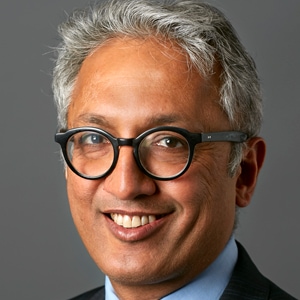From Occupy Wall Street and the Arab Spring to surprising victories for Brexit and Trump, citizens around the globe are pushing back against their leaders’ policy choices.

The world has embarked on a new and uncertain era. The surprise victory of Donald Trump in the US presidential election has created unprecedented anxiety around the globe. It is an echo, magnified many times, of the UK’s Brexit referendum result in June. Across the world, populist movements are gaining more power—France and Germany could be next in 2017—or, at the least, changing the terms of political debate.
For the global economy, these seismic shifts are destabilizing in the short term, prompting currency and stock market volatility. In the longer term they could herald an epoch where, for the first time since the Great Depression of the 1930s, trade becomes less free and globalization, which has defined our world for decades and delivered huge benefits for many, begins to go into reverse.
President-elect Trump has vowed to withdraw from the Trans-Pacific Partnership (TPP) and renegotiate the terms of the North American Free Trade Agreement; the Transatlantic Trade and Investment Partnership (TTIP) with the European Union (EU) also seems likely to be consigned to the trashcan of history. Trump describes China, the world’s largest trading nation, as a currency manipulator and has pledged to bring trade cases against the country.
Meanwhile, despite the hopes of some, the UK, a formerly fervent free-trade advocate, might leave not only the EU but also its single market, which is the world’s largest, following Brexit. And, having narrowly avoided defeat by a Belgian regional parliament, the Comprehensive Economic and Trade Agreement (CETA) between the EU and Canada, arguably its closest ideological cousin, could by scuttled by a proposed Dutch referendum after seven years of negotiations.
Even some emerging markets, which have been among globalization’s greatest beneficiaries, have begun to adopt more-aggressive trade policies. “We’ve seen instances of exchange rate policies that have veered towards protectionism in China, Malaysia and Korea, for example,” says Jeremy Cook, chief economist at foreign exchange provider World First.
The implications of this backlash against free trade and globalization are profound—and potentially disastrous for people and companies in every country around the world. “It is vitally important to defend the prospects for increasing trade integration,” says IMF chief economist and economic counselor Maurice Obstfeld. “Turning back the clock on trade can only deepen and prolong the world economy’s current doldrums.”
Globalism’s Journey And The Popular Response
Until the financial crisis, globalization seemed a one-way street. Companies in the West benefited from lower costs and higher profits as production was offshored, while consumers enjoyed falling prices that helped them to feel more prosperous and kept inflation under control. At the same time, emerging markets experienced the fastest transformation of living standards in history. In a generation, China all but wiped out urban poverty, with per capita income growing from $200 in 1990 to $5,000 in 2010.

Then in 2008, the financial crisis struck. In the West, living standards fell, jobs were lost, and, in some countries, social security was slashed as part of austerity measures. Public discontent was palpable, and politicians of all stripes sought to exploit it. In the immediate aftermath of the crisis, anger was directed primarily toward the financial sector. However, in recent years, the political backlash has pursued a bigger boogeyman.
Globalization became vulnerable because the financial crisis revealed previously concealed fault lines: Not everyone was getting richer during the 1990s. According to Branko Milanovi, author of Global Inequality: A New Approach for the Age of Globalization, the world’s top 1% (who are disproportionately located in developed countries: America’s richest 12% are in the global top 1%) were winners. Middle classes in developing nations, notably China, were also beneficiaries. The working and middle classes in developed countries lost out. They became the bedrock of populist movements.
“Since the 1990s, capitalism has gone global—with a consequent impact on income distribution—while the mass electorate has remained local,” explains Karthik Sankaran, global strategy head at Eurasia Group. “The problems created by this divergence weren’t immediately apparent in the US because there was a compensatory mechanism in place—consumption held up because household leverage kept increasing. However, since the crisis that mechanism has broken down, and the outcome is anger against finance, globalization and migration.”
Is populist anger against globalization fair? Locally, many recent trade deals have certainly wreaked havoc. “Liberalization can have effects on a particular trade or industry, in some cases concentrated in a specific geographical area,” notes Douglas Lippoldt, senior trade economist at HSBC. For an unemployed autoworker or steelworker in a one-industry town, it is easy to blame cheap labor in developing countries and tempting for politicians to promise to “bring jobs back home.”
Ira Kalish, chief global economist at consultancy Deloitte Touche Tohmatsu, says, however, that globalization is not to blame. “Some people have seen their incomes stagnate as manufacturing jobs have disappeared in developed countries,” he notes. “However, the main reason for this is changes in technology.”
The Reality Of Anti-Globalization
Although its definition is nebulous, globalization is generally understood to mean giving greater power to capital to move around the world, while anti-globalization seeks to return some power to labor. Is it already happening?
To be sure, trade is under pressure. “In the years leading up to the Great Recession, trade tended to grow faster than GDP, in some cases at more than twice the pace,” explains HSBC’s Lippoldt. “The world became more trade-intensive.” Since 2015 trade growth has fallen behind GDP growth, and experts expect this trend to continue through 2016, 2017 and 2018. “This is the first time such a run has occurred since the advent of the World Trade Organization (WTO) in 1995,” he notes.
There are a number of reasons for the breakdown of the link between trade and GDP growth. These include shifts in the pattern of global value chains (in part to mitigate risk); increasing capacity in China and other leading developing countries to produce components that were previously imported; the rise of the service sector (which is typically less trade-intensive) in emerging markets; and shortfalls in trade finance in some areas. “However, there has also been a gradual but persistent rise in protectionist measures,” says Lippoldt.
In the post-crisis period through to 2015, WTO monitoring found 14 to 19 new protectionist measures a month. In the first half of 2016, this accelerated to 22 measures a month. Global Trade Alert, an information provider coordinated by the Centre for Economic Policy Research think tank, counts a broader range of trade measures, including subsidies and bailouts, and reports that globally 5,072 new trade restrictions were imposed and kept in place from 2008 to October 2015. “These are mainly small measures but have a cumulative effect, affecting roughly 5% of global trade,” says Lippoldt.
The changing political climate—typified by Trump’s election and Brexit—may not immediately increase the volume of protectionist measures. However, it “creates roadblocks to future liberalization measures,” according to Eurasia’s Sankaran.
Meanwhile, overseas investment also faces intensifying challenges. Around $40 billion in proposed Chinese acquisitions have been rejected since the start of 2015, according to data provider Dealogic. In Australia, the government recently blocked a joint bid by the State Grid Corporation of China and Hong Kong’s Cheung Kong Infrastructure to buy Australia’s largest power grid company. Elsewhere deals for agribusiness firm Syngenta and German chip equipment maker Aixtron face scrutiny. Regulators frequently cite national security for blocked Chinese bids, but some see it as protectionism.
Each quarter Deloitte asks CFOs at North America’s largest companies about the risks in their own operations and the wider business environment. “Over the past four years, growth has been the primary concern, with risks focused on macroeconomic instability in Greece and elsewhere in Europe, for example,” says Greg Dickinson, leader of Deloitte’s CFO Signals report. “But in the last two quarters there has been a shift: Growth is still a main focus, but the concern is that political sentiment will impact international trade and affect global growth.”
Companies are aware of growing risks from anti-globalization sentiment, but are they responding? Stephen Halmarick, chief economist at Colonial First State Global Asset Management, says that to date there is no evidence that companies are amending their business or investment strategies to reflect the changed climate. “[But] globally, business investment is much weaker than expected, especially given how low interest rates are,” he notes. “The issue is a lack of demand and uncertainties over the future, and political developments are making business much more cautious.”
Dickinson agrees that while business concerns have increased, there has been little corporate reaction to the growing anti-globalization sentiment. “Earnings estimates have consistently fallen in recent years, but that is attributable to a range of factors,” he adds. “We believe that the crucial test will come post-election [in the US], when it will become clear if political rhetoric will be followed up by policy changes.”
Positioning For Uncertainty
For companies, the potential costs of ignoring the backlash against globalization are already evident. “Brexit has highlighted the importance of being aware of the risks of populism and protectionism,” says Cook at World First. “Companies face significantly higher costs because of the [20%] devaluation of sterling and, in the future, could suffer from additional tariffs and bureaucracy associated with trade.”
Cook says that it is imperative that companies take action to assess and mitigate these risks. “Regardless of their sophistication, companies can prepare for the risks created by this environment by looking at their budgets and hedging risks, including FX, interest rate and credit risk, where appropriate,” he says. “Hedging allow companies to budget more accurately in times of volatility so they can get on with running their business.” Colonial First State’s Halmarick adds that businesses need to recognize that the world is unlikely to go back to the way it was before: “This is all part of the ‘new normal.’”
In the longer term, the mood that has turned against globalization means that yet more money will stay on companies’ books, accelerating a trend prevalent since the financial crisis and slowing growth, according to Cook. “Corporates are not willing to invest because they are preparing for a rainy day—statistically, a US recession occurs every eight years and [so one] is due in 2017,” he says. “Protectionism raises the risk of a rainy day and will result in greater caution.” Sankaran at Eurasia adds that “there may be greater political and regulatory pressure on companies to localize production,” which could force a reconsideration of operational structures.

Trump’s acceptance address was notably more measured than his stump speeches. He called for “partnership, not conflict” with other nations. The hope is that he will prove pragmatic in office and prioritize a traditional Republican agenda of regulation and tax reform rather than his campaign promises on trade and immigration, says Stefan Kreuzkamp, chief investment officer at Deutsche Asset Management. However, the danger that free trade could be undermined and globalization may lose momentum remains very real.
“If we move in a more protectionist direction, consumers will suffer from higher prices, which will slow spending and growth,” says Kalish at Deloitte. “Retaliatory measures would hit exports and employment. In the long term, there would be negative impacts on emerging markets, which currently benefit from cross-border transfers of knowledge.” A worst-case scenario is the introduction of significant tariff barriers between China and the US, which “would result in mutually assured destruction,” according to Cook. “The hope is that the situation will remain like the Cold War, with cool heads prevailing and occasional skirmishes around the peripheries. But there is clearly a risk that this Cold War heats up.”



